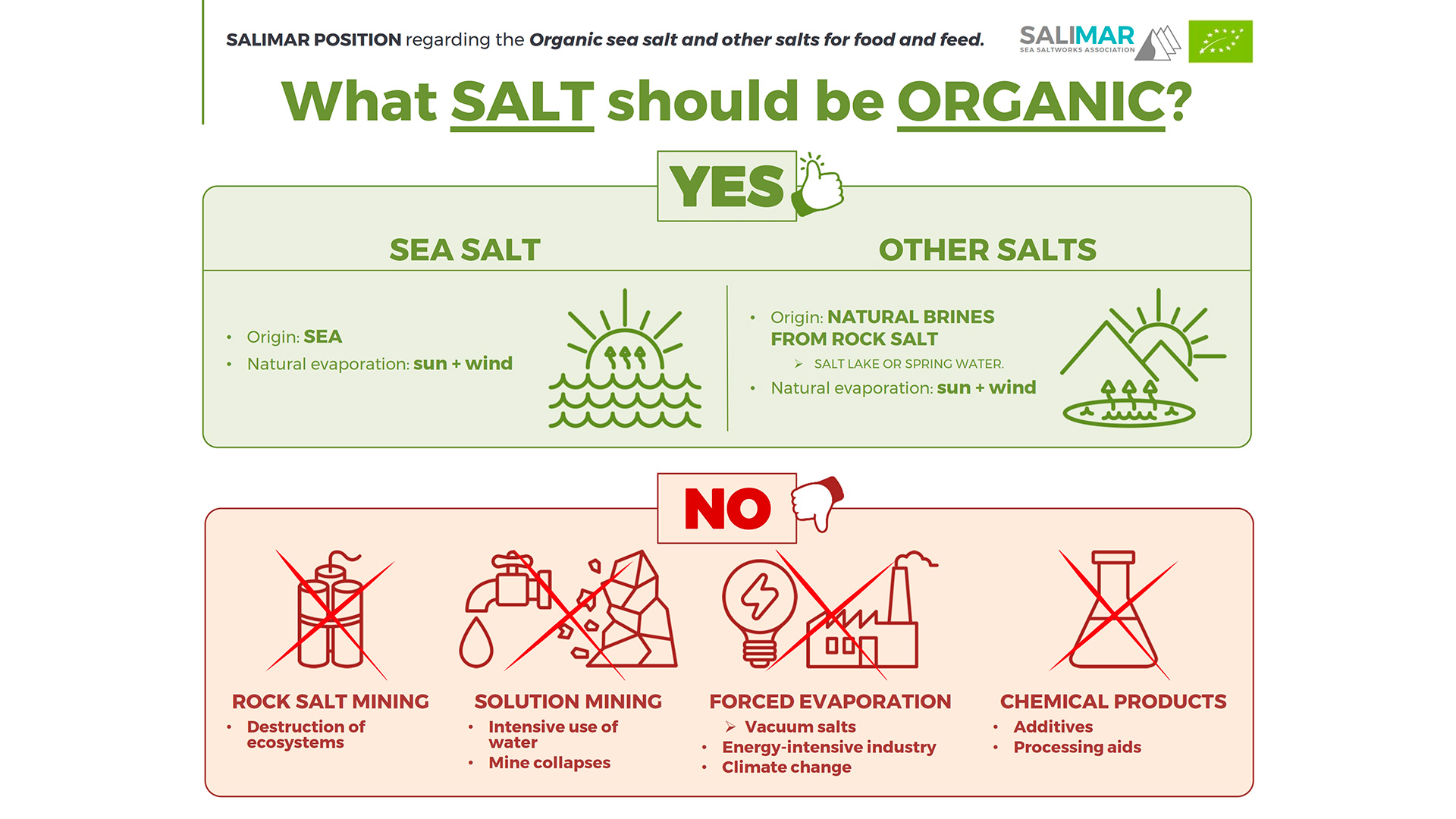
21 Oct What SALT should be ORGANIC?
SALIMAR’S POSITION REGARDING ORGANIC SALT PRODUCTION RULES
Download here the official position of our association.
THE EUROPEAN REGULATION ON ORGANIC PRODUCTION AND ITS IMPLICATIONS FOR SEA SALT
When we buy organic food, we do so because we understand that it has a natural origin. In addition, we hope that its production is sustainable, contributes to environmental protection, the preservation of biodiversity and rural development. This is the spirit behind the European Regulation on organic production and labeling 2018/848.
Within the aforementioned Regulation, salt is included, for the first time within its scope. But it is worth asking, what salt should be organic? As is logical to assume, not all salts can be included and criteria must be established to decide which ones can be certified as organic.
Currently, the regulation considers “sea salt and other salts for human and animal nutrition” within its scope of application. However, it remains to be defined what techniques will be allowed. Can any salt be organic regardless of its production method? This is precisely the starting point of our reflection. It is not enough to have a natural origin, it is also necessary that the way of producing these salts is sustainable and respectful with the environment.
In this sense, the European Commission asked a group of experts for a report to determine what production techniques could be allowed for organic salt. This report allows production methods that we understand are neither environmentally friendly nor sustainable. They are, therefore, in contradiction with the objective of the organic production rules.
PRODUCTION TECHNIQUES ALLOWED FOR THE PRODUCTION OF ORGANIC SALT
From SALIMAR we consider that only the salt that:
- It has a natural origin (sea water or natural brines such as salt lakes or springs).
- It is the result of a solar crystallization (with the only action of the wind and sun) without the addition of any chemical product.
If we take into account these two criteria, the admitted salts would be those from seawater, natural brines (salty lakes or springs).
PRODUCTION TECHNIQUES NOT ALLOWED FOR THE PRODUCTION OF ORGANIC SALT
On the other hand, we do not consider that these production techniques can fall within the application of the regulation:
- Rock sal minig: Mining activity requires, in many cases, the use of explosives. This produces a destruction of the ecosystem.
- Solution mining: This technique involves a large consumption of a scarce resource such as water.
- Artificial evaporation (vacuum salts): This technique involves a large consumption of a scarce resource such as water..
- Use of additives and processing aids: They are not necessary for the production of salt and detract from the natural character of this mineral.
CONCLUSSIONS
It seems logical that sea salt can be certified with the «Euroleaf» (the seal that identifies organic food in the European Union). Likewise, salt exploitation generates ecosystems based on wetlands rich in Biodiversity. Proof of this is the consideration as parks or protected natural areas of most of the European marine salt pans.
With regard to the other salts, we understand that the salt naturally evaporated with the help of the wind and the sun must also be considered as ecological salt. Examples of this would be salts from salty lakes, springs or natural brines, but always with natural evaporation.
For the production of all these salts, it is not necessary to add any additives and they could cover the potential demand for this mineral at European level. Just as we cannot aspire to grow organic tomatoes in climates where these crops do not work, we cannot expect all regions of Europe to be organic salt producers.
Our position can be summed up in one word: CONSISTENCY.


